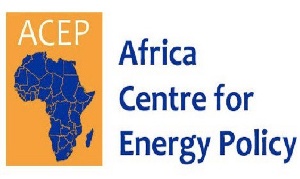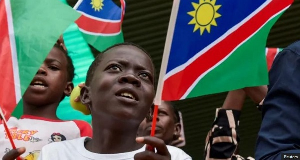The Africa Centre for Energy Policy (ACEP) has observed the need for the Government of Ghana (GOG) to effectively manage the energy sector to drive economic growth and development.
ACEP insists that to achieve this goal, government must focus attention on maximizing the opportunities in the energy sector and address the challenges it presents to the economy.
This was made known in a presentation via Zoom by the Policy Lead on Petroleum and Conventional Energy of ACEP, Mr. Kodzo Yaotse, during which he highlighted the issues that required attention and proposed some critical activities for policy direction by government.
Mr. Yaotse insisted that the GOG should make available information regarding excess electricity produced by the various power producing plants in order to be seen as credible and justify the claim that government was paying for the excess electricity generated.
“The government has consistently indicated that it is negotiating PPAs to relieve the country of excess capacity charges. However, there is no transparency around the negotiations of these PPAs.
“The recent US$134 million judgment debt against the government over the termination of the Emergency Power Agreement with Ghana Power Generation Company (GPGC) Limited is only an indication of the poor judgment that has characterized such negotiations,” Mr. Yaotse added.
ACEP therefore asked GOG to prioritize the conversion of single cycle plants, particularly the KTPP and Ameri plants, which were still in the early stages of their lifecycle, to combined cycle plant to improve their production and cost efficiency to reduce consumer tariffs.
In relating the excess capacity burden of Government to her preparedness to encourage renewable energy, ACEP asked GOG to lift the suspension of the issuance of licenses for embedded generation.
Mr. Yaotse therefore observed that, in the interest of climate action and the energy transition, Government should be seen encouraging the penetration of renewable energy instead of hindering it.
On the ongoing debate about Liquified Natural Gas (LNG), Mr. Yaotse insisted that Ghana must optimize its domestic gas and suspend plans to import LNG.
“GNPC should be subjected to strict proof of the identified market that warrants the risks of importing LNG, and that, if by 2022, Ghana is unable to consume the OCTP makeup gas, some people should be held criminally liable for deliberately causing financial loss to the state,” he said.
In terms of power transmission, Mr. Yaotse said the sustainability of GRIDCo depended on a reformed power sector that paid for the investments in the transmission of power. “The fiscal position of government makes it difficult for the budget to continue to sustain investments in the transmission system,” he explained.
The Petroleum and Conventional Energy Policy Lead said, in the short term, some parts of the Energy Sector Levy Act (ESLA) proceeds should be made available for investment in critical equipment in the transmission system, and that ongoing upgrade works should be expedited to relieve power consumers of the frequent outages and low voltage currently being experienced.
Mr. Yaotse also asked GOG to revert to a transparent process to attract private capital into the distribution sector. “If this is not done in the short to medium term, the entire power sector would be in serious distress, unless government is willing to sacrifice other socio-economic investment to continue to unsustainably prop-up the power distribution sector,” he indicated.
In answering some queries from the press after the presentation, the Executive Director of ACEP, Mr. Ben Boakye said, in order for government to take these concerns seriously, there was the need to project the conversation such that it drew the needed attention.
Mr. Boakye therefore charged the media to stage a campaign that would draw attention to the energy concerns in Ghana to guide government prioritize the needful.
Business News of Sunday, 14 March 2021
Source: GNA

















